Las Vegans meet new transgender military policy with relief, concerns
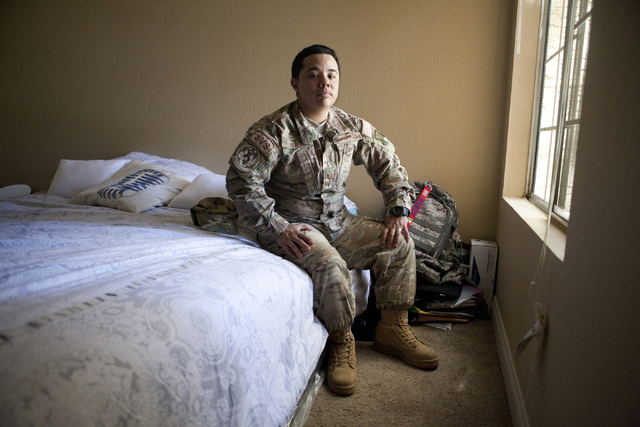

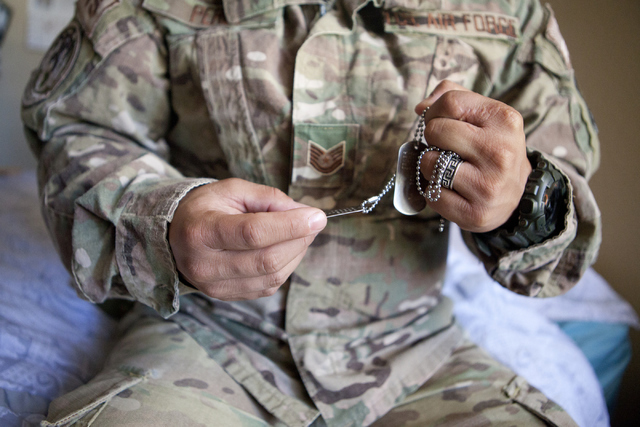
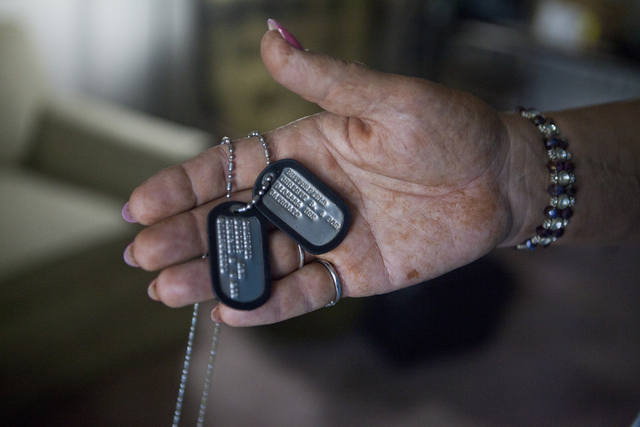
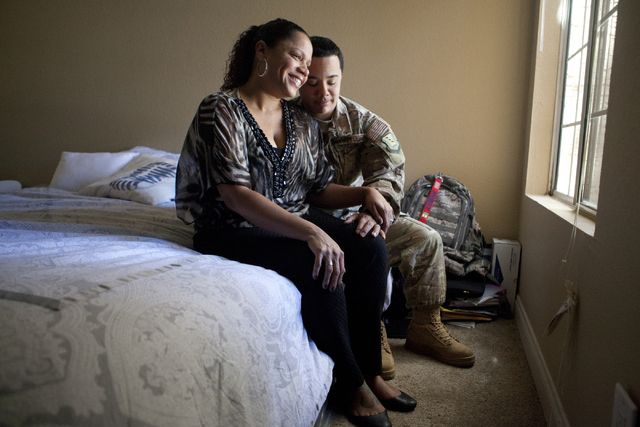


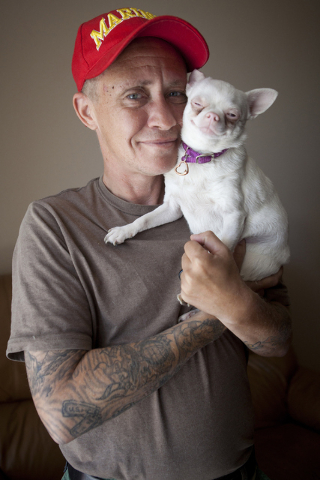


Air Force Reserve Tech. Sgt. Frankie Perez didn’t realize she soon would be transitioning to be a male until a deployment last year to the Horn of Africa.
“I started feeling awkward in the showers,” said Perez, who graduated from Cheyenne High School in 2005.
“I just couldn’t pinpoint it,” he said. “I was feeling something inside where I felt like I didn’t even want to perform my duties at work.
Perez, who served four years active duty as a female airman, is now among those who can serve openly as a transgender man under a new policy announced by Defense Secretary Ash Carter. In launching the transgender military service policy June 30, Carter said it was “the right thing to do for our people and for the force.”
“We’re talking about talented Americans who are serving with distinction or who want the opportunity to serve,” Carter said. “We can’t allow barriers unrelated to a person’s qualifications prevent us from recruiting and retaining those who can best accomplish the mission.”
Perez, 29, and Blue Montana, 40, a Marine Corps veteran who served as a female beginning in 1993 but has been undergoing surgeries since 2011 for male-appearance modifications, said they were pleased the policy finally has evolved. Still, they both expressed concerns at what they perceive as a lack of details.
Christi Butterfield, 65, an honorably discharged Vietnam-era Navy veteran and former law enforcement and corrections officer, served as a man but recently has changed to female gender. She also lauded the new policy, saying it’s “the best thing that ever happened to the military.”
“Whether you’re transgender or not, if you’re willing to go fight for your country, what difference does it really make?” said Butterfield, who recently moved to Las Vegas from upstate New York.
“I happened to know at 7 years old I should have been born a girl. Actually, some of the times in the Navy it was somewhat torturous because at shower time I was with these guys and I had to fight off feelings. I just did what I had to do. I just couldn’t let the secret that was inside out.”
Montana joined the Marine Corps “because I’ve always had a big self-love of country and being patriotic.”
He said he knew that eventually “trans people” would be able to serve openly, as gays and lesbians were allowed to do with the repeal of the Don’t Ask, Don’t Tell policy five years ago.
“It seems like they kind of said, ‘Oh yeah. Trans people can serve, but oh God, we’ve got to go back and make policies about what are we going to do when they go to boot camp,’” said Montana, who works as transgender program manager at The Center on Maryland Parkway, which offers services and support to the lesbian, gay, bi-sexual, transgender community.
“What are they going to do?” Montana said, referring to Defense Department officials. “We don’t know yet. They kind of put the cart before the horse.”
Air Force Maj. Bryan Lewis, a public affairs officer at the Pentagon, said the gender designation or marker entered for the service member in the Defense Enrollment Eligibility Reporting System is what determines the uniform dress standard and grooming standard the service member is expected to meet.
“That also includes facilities that are subject to military regulation for the use of bathroom and shower facilities and berthing,” he said Friday.
Changing a service member’s gender marker in the reporting system will require information from a military medical provider that a person is undergoing treatment for sexual modifications. The Pentagon issued a manual Friday that details how military personnel can get sex changes with time off for the transition.
A Rand Corp. study cited by the Defense Department gives a mid-range estimate of 2,450 transgender personnel out of 1.3 million active component service members, plus 1,510 in the selected reserve component. Only a fraction of the active component — between 29 and 129 each year — will seek transition-related care that could disrupt their ability to deploy.
Montana said, “There are so many shades of transgender. The umbrella is huge. I’m just afraid that they (Defense officials) are not aware of what exactly being transgender is and who we are as people.”
He expects there will be more bullying and intimidation of men in the ranks who are transitioning to be women because they have “a little harder road than trans-men do.”
“It’s kind of easier for us to transition,” Montana said. “We take a couple shots of testosterone, grow some facial hair, cut our hair and we pass pretty well. With trans-women it’s not that easy. They have a little bit more difficult of a time.”
During Perez’s four years of active duty, “I identified as a butch lesbian because that’s what I thought I had to be. But I knew I had to get out because the Don’t Ask, Don’t Tell policy was in place and there was no way I was going to fight and die for my employer who won’t even allow me to be open about who I love,” said Perez, who married a lesbian, Lizette Perez, this year.
Rep. Dina Titus, D-Nev., a member of the House Veterans Affairs Committee, said she supports the new Defense Department policy “because it recognizes the reality that there are already transgender individuals serving in the armed forces.”
“Now it is important that the Pentagon ensures that it is well-prepared to treat all of our nation’s heroes fairly; and that the VA provides access to the services they need and deserve when they return home,” Titus said in a statement.
Peggy Kearns, director of the VA Southern Nevada Healthcare System, said the VA doesn’t currently perform transgender surgeries, but provides pre- and post-care for veterans who are changing their gender.
“It’s being talked about but at this point it is not authorized as an eligible care,” Kearns said. “So if somebody is going through transition, we can do the first part with the hormones and those kind of things. And, if they go out somewhere and have the surgery, we can do the post-care.”
Perez said the policy change for transgenders in the military has created “a whole new ballgame.”
“Before, when I was going to the base I had to shave my face so nobody would see my facial hair,” Perez said. “But now since the ban has been lifted … it’s going to be completely different.”
Contact Keith Rogers at krogers@reviewjournal.com or 702-383-0308. Find him on Twitter: @KeithRogers2












